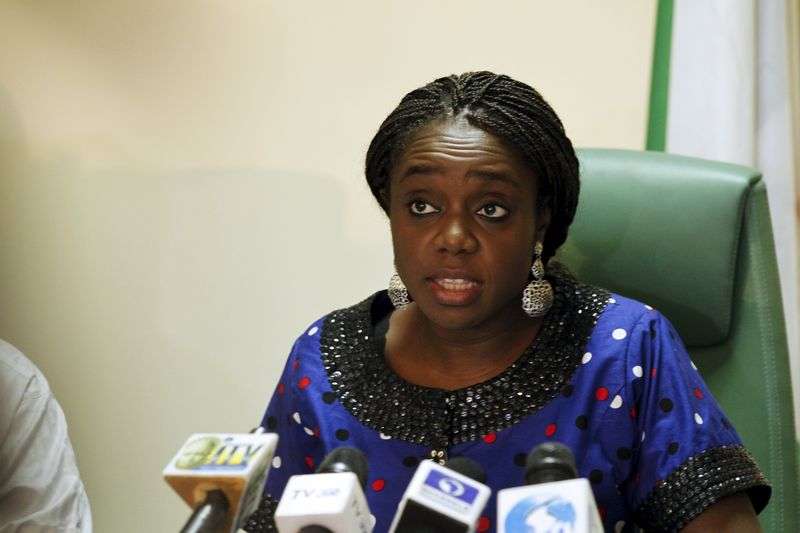- We’ve Injected N2.419tn Into Economy
The Federal Government has injected over N2.419tn into the economy out of the total of N6.06tn budgeted for 2016, according to its 2017-2019 Medium Term Expenditure Framework and Fiscal Strategy Paper.
The figure covered recurrent and capital expenditures incurred as of the end of June this year.
The recurrent expenditure alone, covering salaries, overheads, pensions, among others, gulped N1.479tn between January and June.
The documents obtained on Monday, indicated that revenue challenges affected capital payments, but noted that “capital releases (including capital share of statutory transfers) amounted to N331.58bn.”
The government stated, “These investments, in combination with other policy measures, are expected to revive economic activities.”
Domestic debt servicing claimed N609bn, while foreign debt servicing stood at N567bn.
President Muhammadu Buhari had laid the MTEF and the FSP before the National Assembly last week in Abuja, revealing the government’s plan to budget N6.8tn for 2017.
The figure will be about 13.3 per cent or N806bn above the N6.06tn budgeted for 2016.
The government said crude oil crisis and challenges in the Niger Delta affected oil revenue performance, making it to turn to “financing from borrowing and other sources” to fund the 2016 spending.
The country’s total debt, according to the documents, stood at $61.45bn as of June or “about N16.3tn.”
The government said, “The total debt stock is composed of external debt stock of $11.26bn (or about N3.19tn) and domestic debt stock of $50.19b (N13.11tn).
“Of the total domestic debt, the Federal Government was responsible for about 74.6 per cent, while the 36 states and the Federal Capital Territory accounted for the balance.”
Despite the rising cost of debt servicing, the government said borrowing was still “within the global threshold of 56 per cent for the country’s peer group.”
It explained further, “While the government maintains an expansionary fiscal policy over the short-to-medium-term and despite the country’s rising total debt service costs, the strategy is to keep the debt-to-GDP ratio within the present country specific ratio of 19.39 per cent and potentially review same to not more than 25 per cent in 2017.”
The documents projected the GDP growth of 3.02 per cent in 2017, while inflation was “expected to moderate to 12.92 per cent”, but consumption would increase to N80.05tn.
Its assumptions on crude oil production indicated 2.2mbpd in 2017; 2.3mbpd in 2018; and 2.4mbpd in 2019.
On the benchmark, it projected $42.5 per barrel for 2017 budget and $45 for 2018. For 2019, the figure was put at $50.
For the exchange rate, the government pegged it at N290 per dollar.
It explained, “It is also based on an average growth in employment and labour productivity, as well as an average gross fixed capital formation of 9.41 per cent of the GDP.”
The budgeted crude oil benchmark for 2016 was $38, while in 2015, it was $53. Both projections faced implementation challenges.
Meanwhile, data obtained from the Debt Management Office in Abuja on Monday, showed that while the Federal Government spent a total of N424.63bn to service domestic debt in the first quarter of the year, it spent a total of N217.05bn in the second quarter ending June 30.
On monthly basis, the Federal Government spent N140.39bn in January; N150.27bn in February; and N133.97bn to service its domestic debt.
For the months in the second quarter, the Federal Government spent N82.29bn in April; N71.49bn in May; and N63.27bn in June.
For the 12 months of 2015, the Federal Government spent a total of N1.02tn to service its domestic debt.
In the first half of 2015, the Federal Government spent N1 53.06bn in January, N75.42bn in February; N82.55bn in March; N90.12bn in April; N61.69bn in May; and N65.69bn in June to service domestic debt.
This means that for the first six months in 2015, the Federal Government spent a total of N528.54bn to service its domestic debt.
The implication of this is that compared to a similar period in 2015, the amount used to service the Federal Government’s domestic debt in the first six months of the year rose by N113.14bn.
This shows an increase of 21.49 per cent in the cost of servicing domestic debt within a period of one year.
The domestic debt of the Federal Government stood at N10.61tn as of the end of June while as of the end of June 2015, its domestic debt stood at N8.4tn.
It was discovered that the Federal Government spent a total of N2.95trn to service domestic debts for a period of five years, from 2010 to 2014. The cost of servicing domestic debt rose from N334.66bn in 2010 to N846.64bn by the end of December 2014.
Each year, the Federal Government sets apart some money in the budget for the servicing of both foreign and domestic debts. The actual amount paid, however, may differ from what was budgeted.


 Naira4 weeks ago
Naira4 weeks ago


 Naira4 weeks ago
Naira4 weeks ago


 Naira3 weeks ago
Naira3 weeks ago


 News4 weeks ago
News4 weeks ago
 Travel4 weeks ago
Travel4 weeks ago




 Naira4 weeks ago
Naira4 weeks ago


 Jobs3 weeks ago
Jobs3 weeks ago
 Naira3 weeks ago
Naira3 weeks ago





















